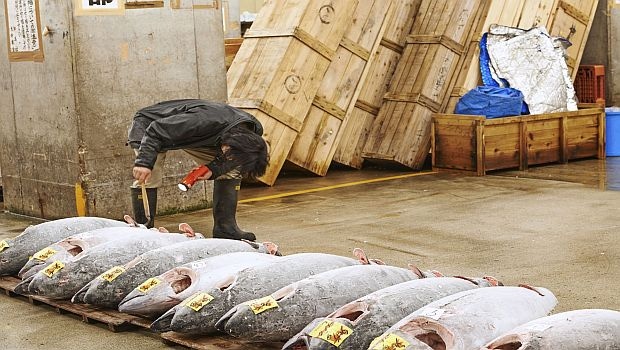FDA has cited the cost of inspections as the main reason for falling short of the mandate under the Food Safety Modernization Act.

Americans often chow down on food that comes from outside the United States. Yet the federal agency that is chiefly responsible for the safety of the nation’s grub is conducting far fewer inspections of foreign facilities than the law requires, according to a January 2015 government report.
In fiscal year 2014, the U.S. Food and Drug Administration (FDA) conducted 1,323 inspections of foreign food facilities. That’s just 28 percent of the number required (4,800) by the 4-year-old Food Safety Modernization Act (FSMA), according to a report from the U.S. Government Accountability Office (GAO). FDA actually conducted more inspections the previous year (1,403).
“FDA has not completed plans for 2016," the GAO said, “but officials expect the agency to complete about 1,200 foreign food inspections a year for the foreseeable future."
FDA has cited the cost of inspections as the main reason for falling short of FSMA’s mandate. The agency has estimated the average cost of a foreign inspection is $23,600, compared to $15,500 for a domestic inspection.
FDA would have needed $113 million to complete the 4,800 inspections in FY14 that were required under the law, according to the GAO. The agency only received $138 million to implement all provisions of FSMA. FDA is notoriously underfunded and has struggled to meet a variety of deadlines under the sweeping law.
“FDA officials told us that, given limited funding, the agency determined that additional foreign inspections were not the best use of FSMA-related funds," GAO reported. “FDA officials said they were focusing instead on technical assistance to the domestic and foreign food industry to help manufacturers comply with new FSMA rules, as well as training for FDA investigators and other agency staff to modernize FDA’s food inspection program."
FDA has foreign offices scattered throughout the world from London and Brussels, Belgium to Pretoria, South Africa and Beijing and Guangzhou, China. The offices have pitched in to help FDA with inspections of foreign facilities, conducting 140 total inspections in FY14, the GAO said.
Other than overseeing domestic and imported meat, poultry and processed egg products—the territory of the U.S. Department of Agriculture—FDA is chiefly responsible for ensuring the safety of the U.S. food supply. That includes various imported foods, which as a percentage of total food consumed in the United States has risen from 9 percent in 2000 to 16 percent in 2011, according to the GAO.
The National Marine Fisheries Service reported that 91 percent of seafood eaten in the U.S. was imported in 2011. In that same year, U.S. imports of fruits and vegetables surpassed $18 billion, according to a 2014 report by the Congressional Research Service.
But FDA only inspects a fraction of imported foods. For instance, in FY12, the agency physically examined just 1.9 percent of food import lines, according to a November 2013 report to Congress.
“It is important to note that while FDA is not able to physically inspect a large percentage of food entries, all import entries are electronically screened using an automated system, which helps field inspectors determine which products pose the greatest risk and, therefore, should be physically examined," the agency explained.
About the Author(s)
You May Also Like






.png?width=800&auto=webp&quality=80&disable=upscale)